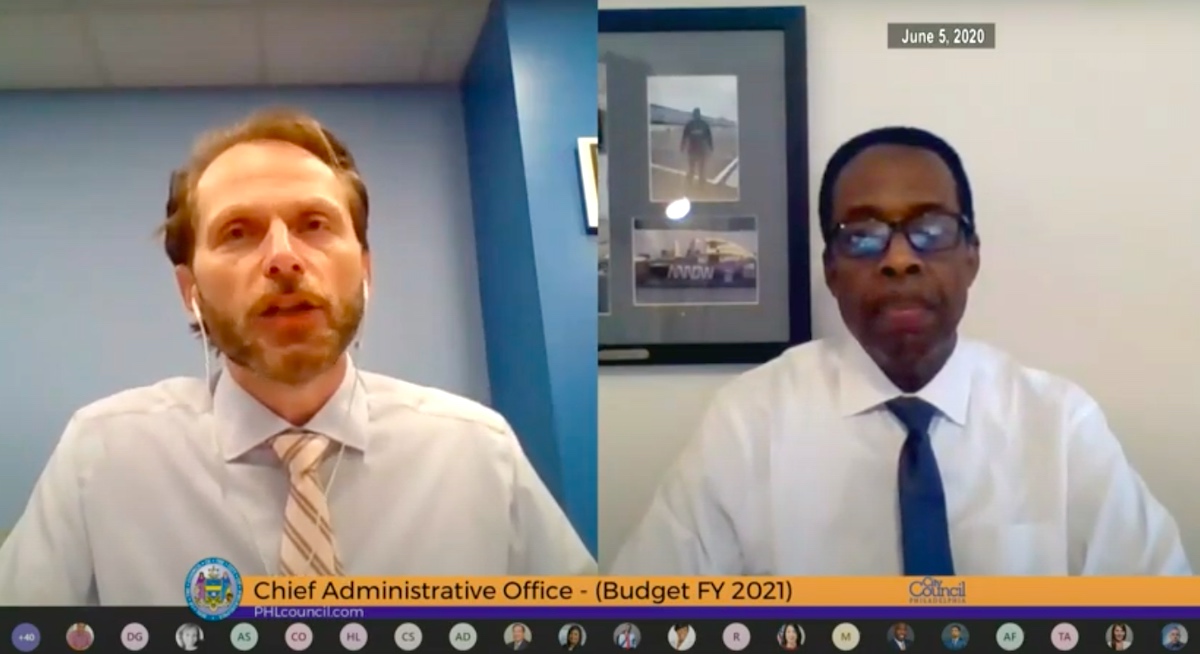At a recent City Council budget meeting debating FY2020-2021, the City of Philadelphia’s chief information officer mentioned an ambitious new idea to help Philadelphians without internet access get connected.
During the hearing on Friday, Councilmember Cherelle Parker asked CIO Mark Wheeler what city officials are doing to help people in underserved communities get online.
“Philadelphia is lacking in infrastructure relative to technology,” Parker said. “What are we doing from a comprehensive perspective relative to all of the [service] carriers that can help Philadelphians get connected? If you want to work, go to school, civically engage or get medical help, you need to be connected. What is Philadelphia doing?”
(Check out the video of the hearing, with Parker asking her question around the 1:48:50 mark, below.)
The digital divide between people connected to digital resources and those not connected existed well before the coronavirus pandemic dramatically changed people’s lives. But as Parker noted, Philadelphia is behind the curve in helping connect people.
The School District of Philadelphia pivoted from in-person classrooms to digital learning. Physicians now prefer telehealth appointments in lieu of in-person doctor visits. Without internet access, none of that is possible.
In March, the City reached out to local telecommunications firms to discuss what they could do to help communities, and Comcast was the only firm to engage the City in a meaningful way, according to the CIO. Comcast’s Internet Essentials initiative providing lower-cost internet access for eligible families was updated to offer two free months of service during the spread of COVID-19.
Friday, Wheeler’s response to Parker emphasized the City’s need create a self-sustaining financial model to help people lacking internet access get service.
“It is time for us to, as a city, take a leadership rein and work with the private-sector partners, work with institutions, gather as many individuals from the social impact investment world who are willing to work with us and create a model for Philadelphia where we can create a self-sustaining, funded program for any household in the city that needs to pay for — and cannot do it for themselves — internet connectivity,” he said.
In a Tuesday morning call with Wheeler and his team in the Office of Innovation and Technology (OIT), Digital Inclusion Fellow Juliet Fink Yates told Technical.ly that there are similar funding models in San Jose, California, San Antonio, Texas and Baltimore primarily to benefit students: “Other models out there are focused on digital access for schools,” Yates said.
Wheeler said that the City’s proposal could be a subsidy model similar to the housing choice model the Philadelphia Housing Authority uses for lower-income families to find homes, for instance. Such a model would be the first of its kind to meet both students’ and families’ internet access needs.
“Whatever the funding model looks like, a subsidy or voucher or buy-in from a neighborhood, it has to be sustainable,” Wheeler told Technical.ly. “I need the investment community who’s heard the nation’s protests to look at how they look at the return on investment and figure out for themselves how without technology, people are adrift.”
(OIT added this point of clarity after this story was published: “Investors have to figure out how to construct a new ROI that takes into account the costs to society of not having basic access to education, jobs applications, job training, telehealth, commerce, etc., and factor it in. We need a new ROI model that takes into account the societal benefits and costs of the absence of internet access.”)
Deputy CIO of Innovation Management Andrew Buss said that through programs like the Digital Literacy Alliance, OIT is already working on helping people use the internet to better their lives. Three local organizations recently received $30,000 DLA grants to help communities access digital services during the pandemic.
“The Digital Literacy Alliance really brought something to bear,” Buss said. “The people infrastructure is already happening, so finding other actors like funders will help. It’s hard to get funders to understand technology is in all of their programs.”
The plan is still in its early stages and Wheeler added that city officials are currently meeting internally and having conversations with the school district in addition to laying the groundwork for a stakeholder engagement process. Wheeler hopes for a plan to be formed “by the fall.”







